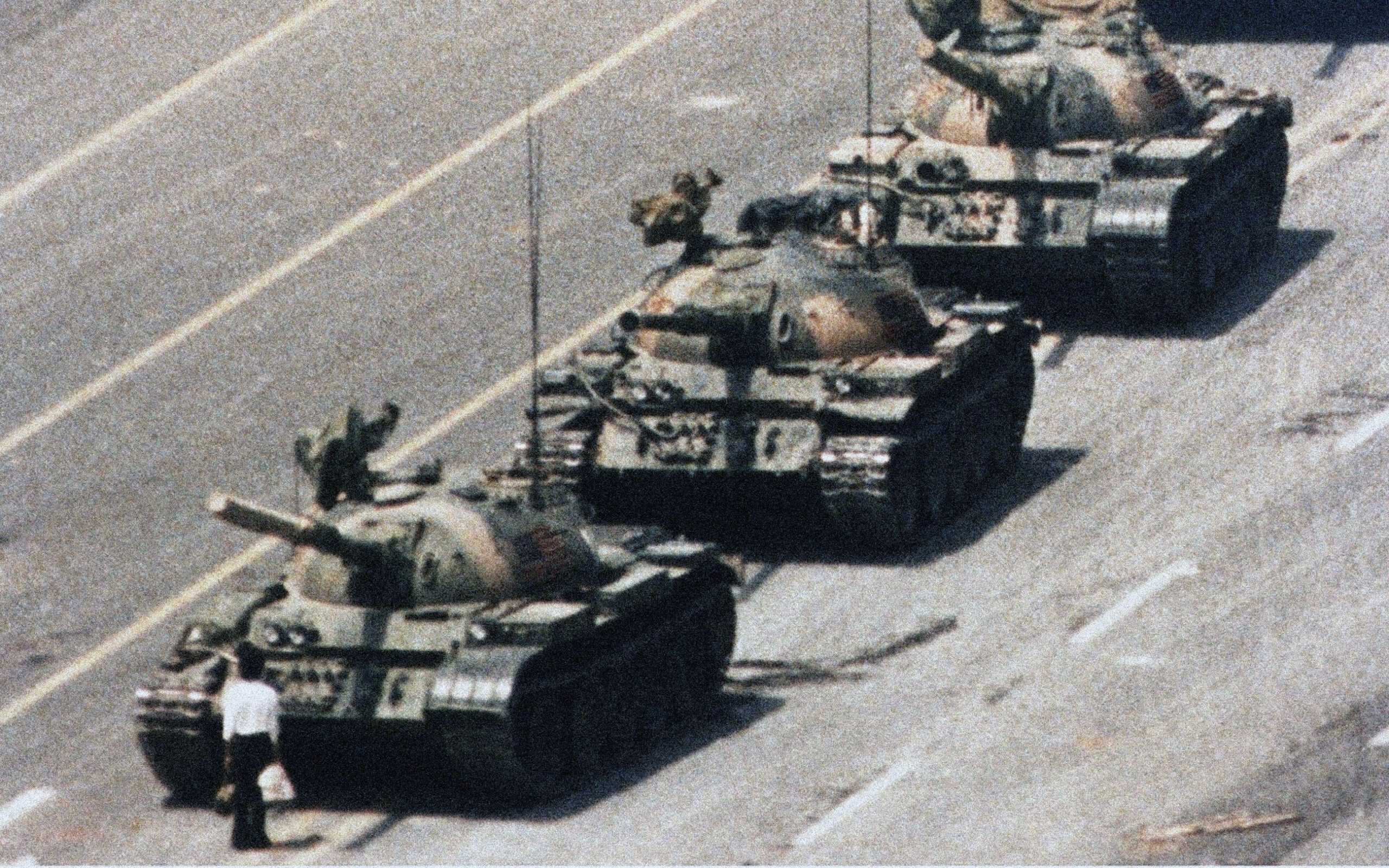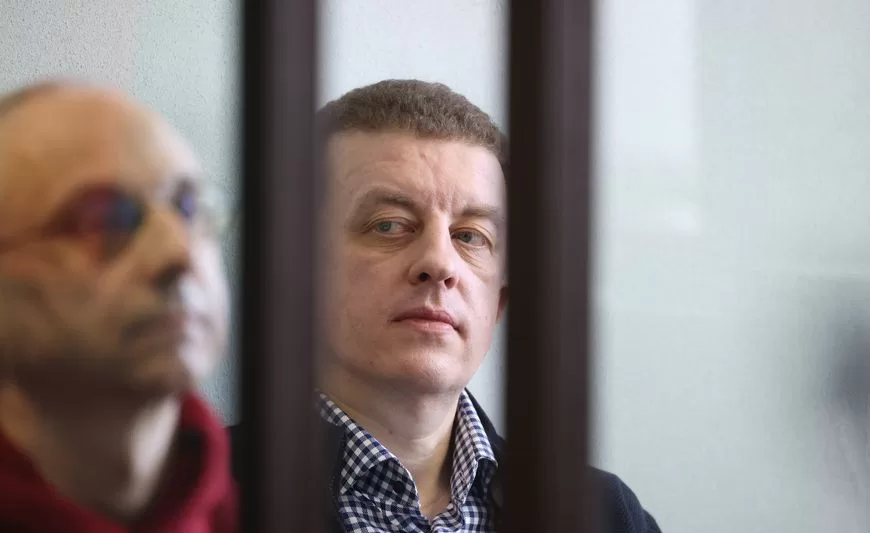This translation was first published in The Independent, 10 June 1989 and in volume 18, issue 8 of Index on Censorship.
We are on hunger strike. We protest, we appeal, we repent. We are not in search of death; we are looking for real life. In the face of irrational and violent pressure from the Li Peng government, the Chinese intellectuals must cure their soft-boned disease of being vocal but of never being active for thousands of years. We must act to protest against martial law, to call for the birth of a new political culture, to make up for our past mistakes of being soft and weak for so long.
We all share responsibility for the Chinese nation being left behind many others.
The purpose of the hunger strike
A) This movement to democracy, which is unprecedented in Chinese history, has from the very start adopted legal, non-violent, rational and peaceful means to fight for freedom, democracy and human rights. But the government under Li Peng mobilised hundreds and thousands of armed troops to suppress the unarmed students and people of all walks of life.
So our hunger strike is no longer a petition in protest against martial law. We advocate the promotion of democratisation in China through peaceful means; we are against any form of violence. However, we are not afraid of brute force. We want to show that democracy practised by the people by peaceful means is strong and tenacious. We want to break the undemocratic order maintained by bayonets and by lies. This ridiculous and unreasonable attempt to impose martial law on students and people of all walks of life who are peaceful petitioners has set a very ugly precedent in the history of the People’s Republic of China. It has brought great shame to the Communist Party, to the government and the Army; it has ruined the results often years of reform and opening up.
B) The history of China for thousands of years has been full of the removal of brute force by brute force and mutual hatred. In modern times the concept of ‘enemy’ has become a tradition amongst the Chinese. The slogan of ‘taking class struggle as the key link’, has, since 1949,pushed to its extremity the traditional psychology of hatred and the concept of enemy, and the removal of brute force by brute force.
The present imposition of martial law is also a mark of political culture which is in the mode of class struggle. That is why we are on hunger strike. We call on the Chinese people from now on to diverge gradually from and eliminate the concept of enemy and the psychology of hatred. We must completely get rid of the political culture of class struggle.
We must do this because hatred can only produce violence and dictatorship. We must adopt the spirit of tolerance. We must begin to build up Chinese democracy with a democratic spirit of tolerance and concept of co-operation. Democratic politics is a politics without enemies, without hatred. Instead it means a politics based on mutual respect, mutual tolerance, and mutual compromise, through consultation, discussion, and the electoral process.
Li Peng as Prime Minister has committed major mistakes and he should resign according to democratic procedures. But Li Peng is not our enemy. Even if he steps down he should still enjoy the rights of every citizen, even the right to maintain his mistaken ideas. We appeal to the government and to all ordinary citizens to get rid of the old political culture and to adopt a new political culture. We appeal to the students and the government to negotiate peacefully, to begin the process of consultation and enter into dialogue. In this way they must work to end opposition and confrontation between the two sides.
C) This student movement has won unprecedented sympathy, understanding and support from the whole of society and from people of all walks of life. The imposition of martial law has turned a student movement into a nationwide movement. Many people support the students out of human sympathy and dissatisfaction with the government, not through a consciousness of political responsibility. So we appeal to the whole of society gradually to stop being purely sympathetic on-lookers. Instead they should try to understand the concept of equal political rights. Every citizen should have the self-confidence to know their own political rights are equal to those of the Prime Minister.
Citizens’ consciousness is not just a sense of justice and sympathy but of rational participation, that is of political responsibility. Everyone must be not only sympathisers and supporters but participators in the building-up of democracy. Lastly, citizens’ consciousness is a question of sharing responsibility and obligations. Reasonable and legitimate social politics are to the advantage of everyone. But unreasonable and illegitimate social politics are the responsibility of everyone also.
D) For thousands of years Chinesesociety has continued in the vicious circle of doing away with the old emperor and then crowning a new emperor. History has proved that the exit of one leader who is no longer popular and the entry of another cannot solve the substantial question of Chinese politics. What we need is not a perfect saviour but a perfect democratic system.
Rather ten devils to check each other than one mandarin with absolute power.
Second, establish a perfect system of checks and balances by recalling those leaders who have made serious mistakes. It is not important who should get off and who should get on to the stage; the important thing is how.
Undemocratic procedures can only lead to dictatorship.
E) During this movement the government and the students have both made mistakes. The mistakes of the government are dominated by the old mode of class struggle, of a way of political thinking which places them in opposition to the students and citizens.
The mistakes of the students are mainly the crudeness of the students’ own organisation. There appeared to be a lot of undemocratic elements in the process of seeking democracy. So we appeal both to the government and to the students; they should calmly question and examine themselves. It is our view that as a whole the mistakes of this movement are mainly with the government. Marches, hunger strikes and actions of that kind are democratic methods. They are entirely legitimate and reasonable and do in no way constitute unrest.
But the government has ignored the basic rights endowed to every citizen by the constitution and has declared this movement to be a form of unrest. This stems from their thinking in terms of dictatorial politics and has led to a series of mistaken decisions and to confrontation. Therefore the real creator of the unrest is the government’s error. The seriousness of its mistakes is no less than of those taken during the Cultural Revolution. It was only due to the self-restraint of students and citizens and due to the strong appeals of society, including the wise people in the Party, the government and the army that massive bloodshed was then avoided. The government must admit its mistakes. A correction now would not be too late. The government should draw the painful lessons from this massive movement to democracy. It should learn to listen to the voice of people. We think the true realisation of democratic politics is the democratisation of the procedures, the methods and the operation. So we appeal to the Chinese: Get rid of the tradition of pure ideology-making, of sloganising, of objectifying. These are empty democracy. They must start the process of turning a democracy movement centred on the enlightenment of thought into that of an actual operation.
F) The major errors by the government in decision-making are shown in the phrase they have used to describe the movement: they have called us ‘the very, very few’. Through our hunger strike we want to show public opinion in China and abroad that the so-called Very, very few’ are people who are not merely students. Those who actively took part in this nationwide movement to democracy, led by students, are citizens with a sense of political responsibility.
It must be acknowledged that to govern a country democratically is a strange concept for every Chinese citizen. So all citizens of China must learn from the very beginning — and in this way we must include the top leaders of the party and the state. In the process mistakes by the government and by the people are inevitable. The key lies in acknowledging their mistakes when they occur, and in correcting them when they occur, in learning from mistakes so that they can be turned into a positive asset and, in the process of correcting mistakes, to learn to govern our country democratically.
Our main slogans:
- We have no enemy. Don’t poison our wisdom and the democratisation of China with hatred and violence.
- We all need introspection. Everyone is responsible for the fact that China has been left behind by many other countries.
- We are first and foremost citizens.
- We are not in search of death — we are looking for real life.
The rules of the hunger strike
- A) Location: under the monument to the People’s Heroes in Tiananmen Square.
- B) Duration: 72 hours, from 1400hrs 2 June to 1400hrs 5 June.
- C) Rules: boiled water only, no food, no nutritious drinks (such as sugar, glucose, fat or protein).





